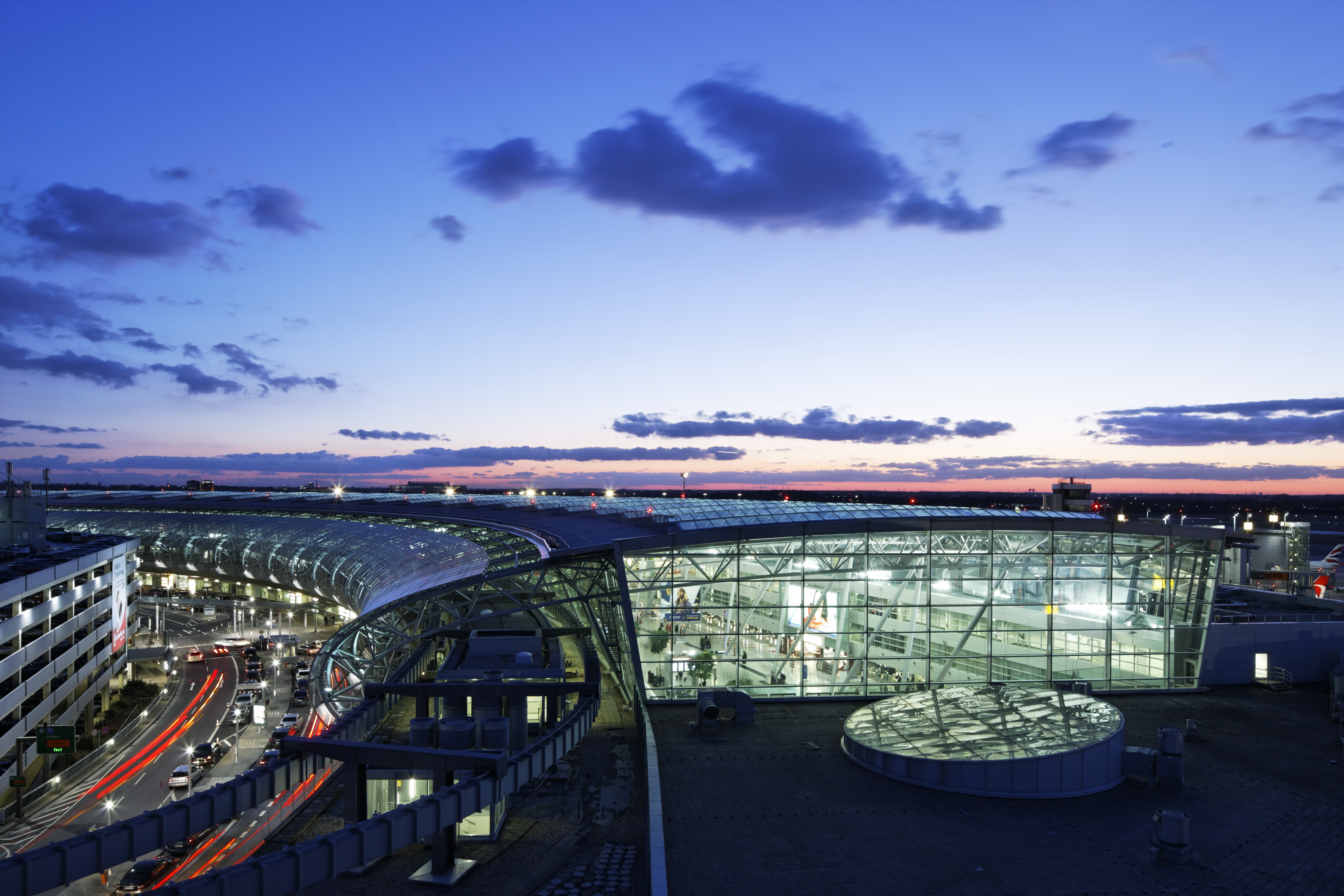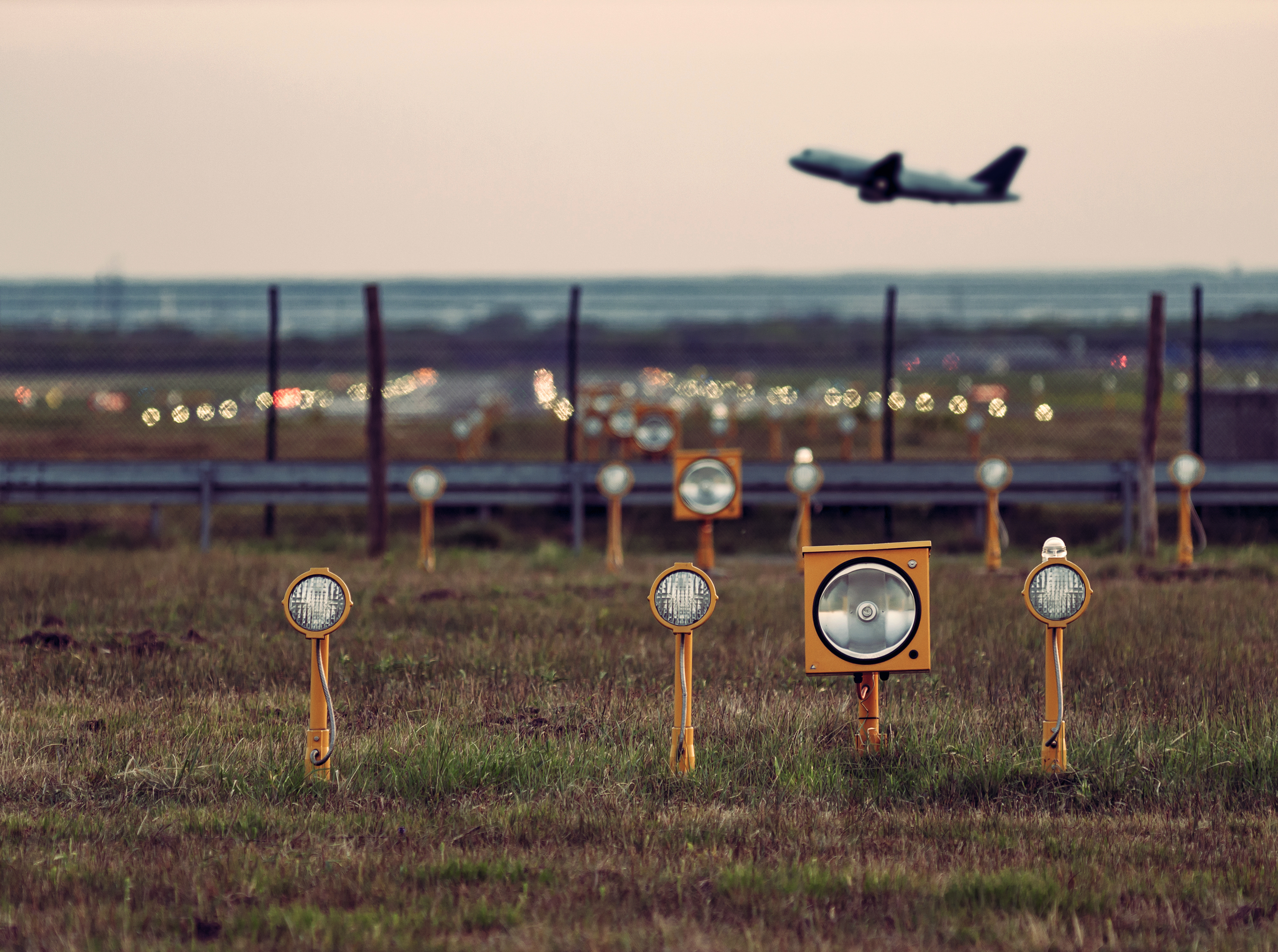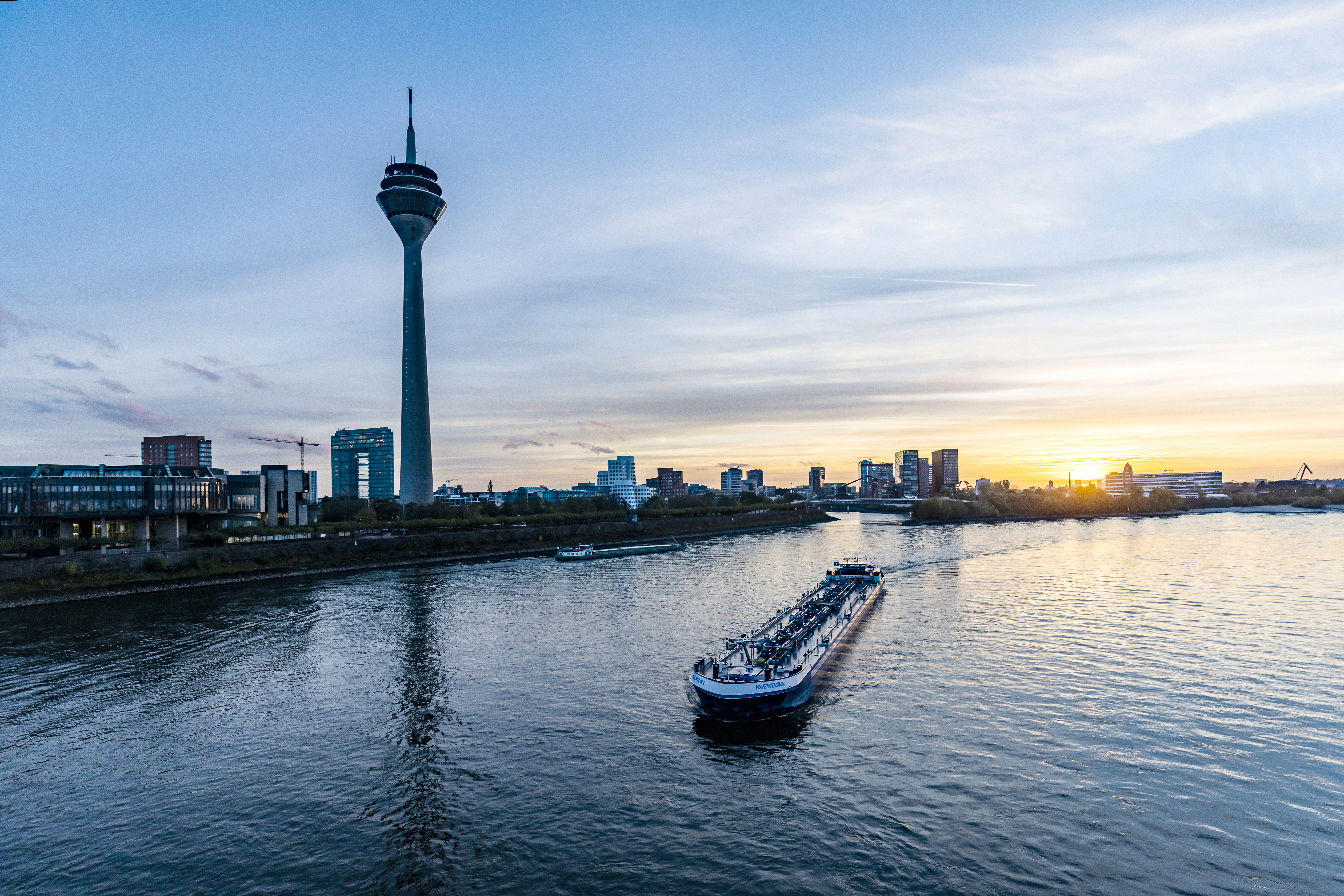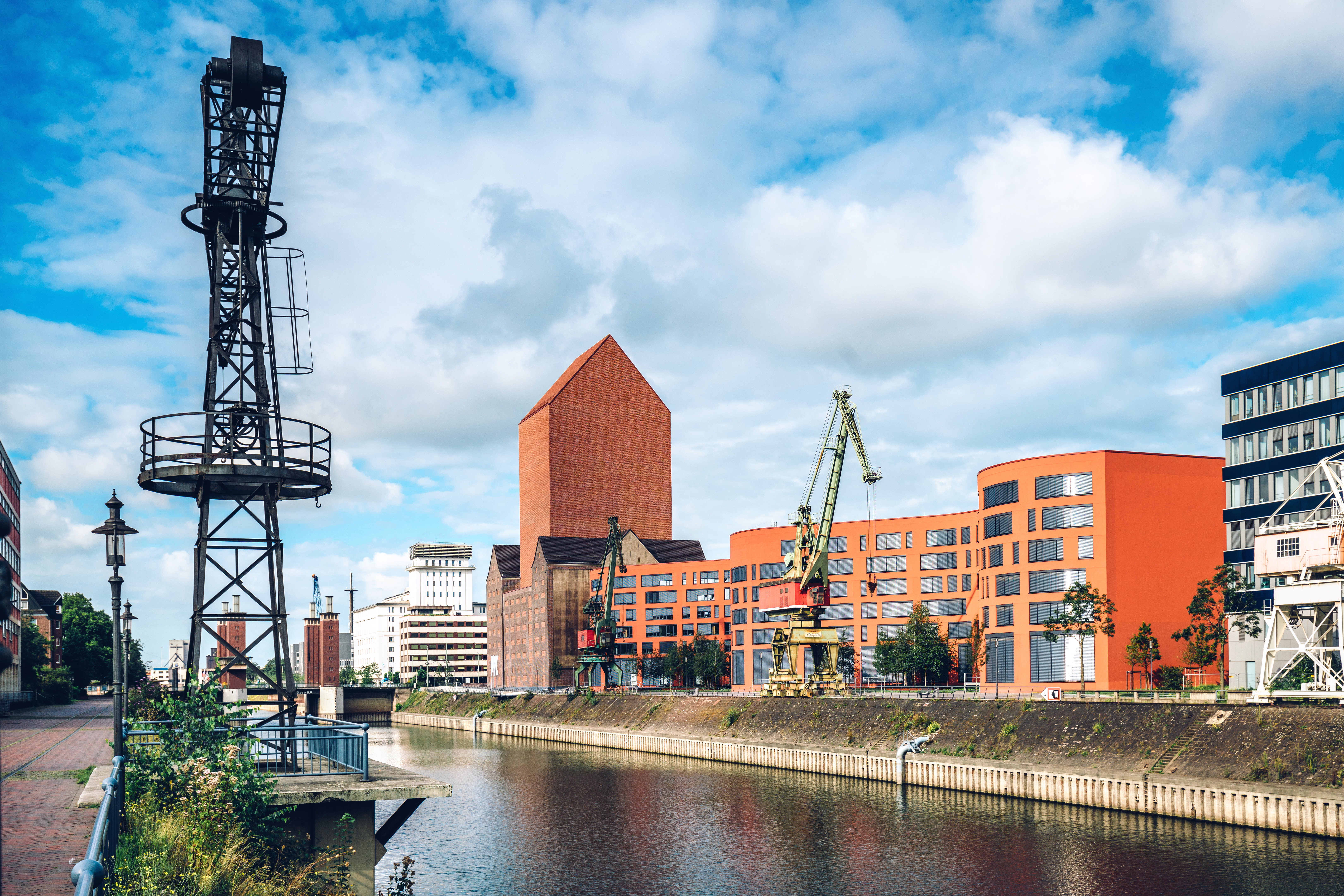Markus Bangen, CEO of Duisburger Hafen AG, reveals why the world’s largest inland port located in NRW is a key hub for global trade.
Discover how NRW connects industries, markets and opportunities.
Join the beat.
With six airports, a close-knit road and rail network and the world's largest inland port, NRW boasts an excellent transport infrastructure in the heart of Europe – making the state a key hub. But only smart and stable digitally linked networks create the beat that companies need today.
Markus Bangen, CEO of Duisburger Hafen AG, reveals why the world’s largest inland port located in NRW is a key hub for global trade.
Discover how NRW connects industries, markets and opportunities.
Join the beat.
NRW is an important transportation hub in the middle of Europe. Very few regions can offer companies comparable conditions for transport and logistics.




are available to air travelers in NRW. The two major airports, Düsseldorf and Cologne Bonn, are particularly efficient, as are other airports with European connections in Dortmund, Münster/Osnabrück, Paderborn/Lippstadt and Weeze/Lower Rhine.
take off from the NRW hub to all the world's major cities. And if that's not enough, high-speed trains like the ICE take travelers from NRW to the European air hub Frankfurt/Main Airport in less than an hour.
are also available in NRW. The connections extend to the North Sea, the Baltic, the Atlantic, the Mediterranean and the Black Sea. Direct connections to the Belgian and Dutch seaports, as well as to the major German seaports of Bremerhaven and Hamburg, make NRW the central point of intersection of the most important European waterways.
in NRW handle 99.8 million tons of goods by ship each year, making the state by far the largest inland port location in Germany. In fact, Duisburg is home to the world's largest inland port, handling a total of more than 102 million tons annually, including private plant ports and rail and truck transportation.
But NRW not only impresses with its close-knit transport networks; the "data highway" is not neglected here either. NRW is also far ahead in terms of digital infrastructure. A forward-looking digital strategy and stable digital networks are important drivers here – and also make NRW a key digital hub.

NRW ensures high broadband Internet availability of 94 percent – by comparison, France achieves only 83 percent and Belgium 88 percent.

In mid-2024, 94.6 percent of the state's territory was covered with 5G by at least one network operator. By the end of 2030, 5G is to be available everywhere in NRW.

LTE coverage in NRW is already around 98.7 percent across all providers.
© Flughafen Düsseldorf, Andreas Wiese
© Shutterstock, Simon Kletinitch
© NRW.Global Business, Jan Tepass
© Shutterstock, Katjen
© imaginima, iStock
© Jian Fan, iStock
© MF3d, iStock
© mauritius images, iStock
© NRW.Global Business
These and many other location advantages await you in NRW. Invest in one of the most attractive economic regions in Europe. NRW.Global Business will help you – contact us!